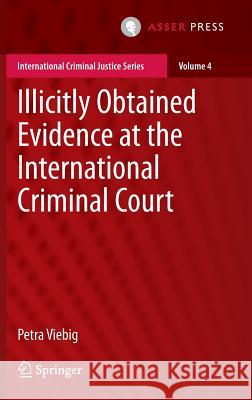Illicitly Obtained Evidence at the International Criminal Court » książka
topmenu
Illicitly Obtained Evidence at the International Criminal Court
ISBN-13: 9789462650923 / Angielski / Twarda / 2016 / 291 str.
Kategorie:
Kategorie BISAC:
Wydawca:
T.M.C. Asser Press
Seria wydawnicza:
Język:
Angielski
ISBN-13:
9789462650923
Rok wydania:
2016
Wydanie:
2016
Numer serii:
000763298
Ilość stron:
291
Waga:
5.86 kg
Wymiary:
23.5 x 15.5
Oprawa:
Twarda
Wolumenów:
01
Dodatkowe informacje:
Wydanie ilustrowane











